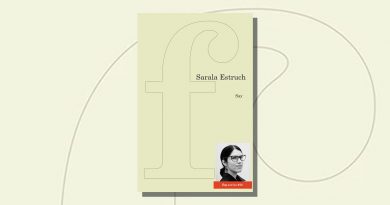Things Only Borderlines Know by Olivia Tuck
-Reviewed by Emma Lee-
Olivia Tuck’s pamphlet explores aspects of borderline personality disorder, a mood disorder where those diagnosed might have poor impulse control, contradictory moods where they desire to be in someone’s company but behave manipulatively or in such a way that deters that person from being with them. It’s one of those ‘catch all’ diagnoses with no clear definition and often has origins in childhood trauma. There’s no single treatment pattern either, some are offered anti-anxiety medication or anti-depressants, and talking therapies are useful.
Things Only Borderlines Know begins with a punch. In ‘The Function of Emotions’
“To draw blood. To press razor tracks
against your shaking wrists.
To destroy parties.To finger-paint bruises
across friendships as you cling.To make sunsets hurt.
To beat up the walls, and the doors,
and the windows,
and the sky.To turn the dialling tone
into the revving of a chainsaw.”
It starts with self-harm, sometimes used as a way of ‘letting out’ emotions. The irregular stanza lengths are indicative of the fragmentary, disruptive thoughts of the narrator. The poem moves on to being clingy and needy around friends, the sense of dissatisfaction. The direct vocabulary attempts to articulate uncertainty and anxiety.
Mental ill health in teenagers is difficult to diagnose and many doctors take a wait-and-see approach as teenagers can be moody and find it difficult to express themselves and there is a reluctance to medicate because of the side-effects of drugs for mental health problems. In ‘ADOS’ (an acronym for Autism Diagnosis and Observation Scale), the teenaged narrator is under observation,
“An hour dangled from a spider’s thread
before us, and by my ankles I was seized:
hauled through their bramble patch of puzzles.
They explained that if I could click my heels
and complete the jigsaw, I’d wake up in bed.Storm-Eyes wore dandelions at her temples;
made me introduce her to a paperclip girl I’d named
Molly. Had Molly possessed her own eyes,
they’d have smarted. Her forehead was a piece of space.
Her wire mouth was razor-cold, teased into a bowl.In bled the light of a terminally ill summer,
and in each question I heard the thirsty mob”
The narrator has enough awareness to know she is being observed, that the questions she is being asked are purposeful. The questions probe but the narrator isn’t readily answering. She knows her answers will be used to determine her future, whether she gets to stay at home or become hospitalised. There are two of them but one of her: she’s outnumbered and keenly aware of the power imbalance. There is a spell in hospital. In ‘Cigarette Break Outside Green Lane Hospital’, Tuck explores how Zopiclone is readily used to treat insomnia:
“One of the doctors should
write up some zopiclone
for the moon.
She’s washed out. Pale
like depression. Wild
like paranoia, like
an ECT storm crackling
through the skull.
Not supposed to be still
awake
watching, watching”
A mental health ward is a strange place: medical staff care for patients but are also there to observe them and patients often become aware they are being observed, that how they behave determines what treatment or privileges they get. Some will try and play the system, pretend to behave in a way that will get them ‘rewarded’. The title poem is a reminder of the contrary behaviour exhibited,
“That whatever you are, you need to destroy it.
That going for your cookie-dough skin with a razor stings
more that acting against it with fiercer tools, but
it doesn’t matter abandonment is what truly cuts.That driving a dear weather-beaten psychiatrist
to earlier-than-planned retirement is easier than it sounds.”
There’s a strong sense that whatever good happens to the narrator is merely a sign something bad is around the corner. The attention-seeking behaviour is often a cover for fear of being left alone but ends up encouraging people to leave so the attention-seeking behaviour escalates and becomes a negative feedback loop.
In Things Only Borderlines Know Olivia Tuck has created an authentic exploration of aspects of borderline personality disorder. The poems lack self-pity and are not judgmental: merely present situations for readers to engage with. The poems are raw, honest and yet still structured and crafted. This is the first pamphlet released by Black Rabbit Press. The production values are excellent: the red flyleaves and laser-cut fractured heart shape on the black front cover makes this a beautiful pamphlet to have.






Extremely good writing. My way is to elevate, using a positive or upward trend, but yes, souls are all different and if this poetry helps then awesome! Shows much talent!